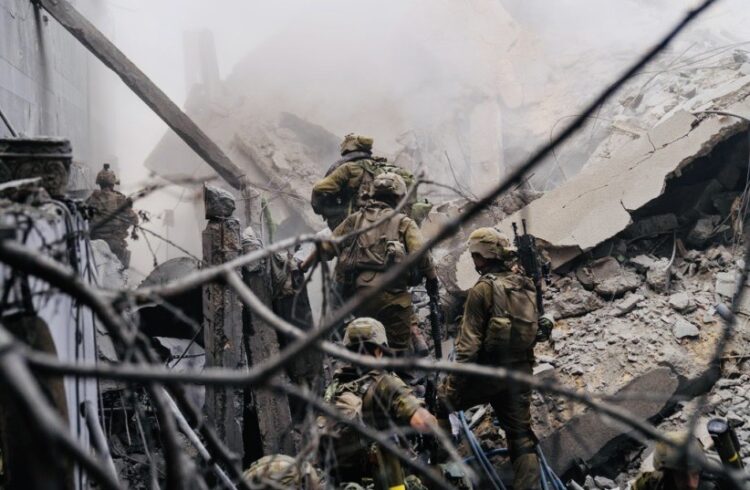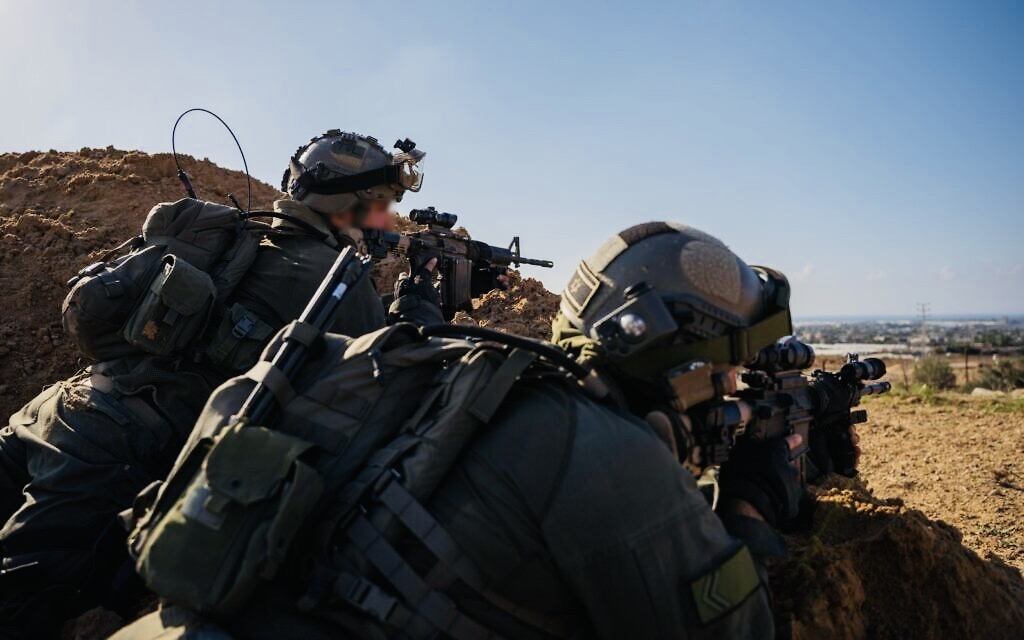Thankfully, the United States has vetoed what could have been a binding and potentially dangerous United Nations resolution calling for an immediate ceasefire to end the two month-old Israel-Hamas war.
Sponsored the United Arab Emirates, and supported by the permanent and non-permanent members of the Security Council, yesterday’s motion would have placed enormous international pressure on Israel to cease its essential military operations in the Gaza Strip, which have so far claimed the lives of 97 Israeli troops.
One of the fallen soldiers, Gal Meir Eisenkot, was the son of Gadi Eisenkot, the former chief of staff of the Israeli armed forces and currently a member of Prime Minister Benjamin Netanyahu’s war cabinet.

Since Hamas’ slaughter of 1,200 Israelis and foreigners in southern Israel on October 7, the Israeli government has justifiably been bent on eradicating Hamas as a military and political force that can no longer threaten Israel and sow instability in and around the border region.
Israel is well within its rights to finish this extremely important mission, regardless of the tragic consequences on Gaza’s Palestinian civilian population, which is caught in the crossfire.
Appalled by the this humanitarian crisis, United Nations Secretary-General Antonio Guturres recently invoked Article 99, a rarely used rule that allows him to notify the Security Council of a crisis that “may threaten the maintenance of international peace and security.”
Addressing the Security Council last week, he said, “There is a risk of the total collapse of the humanitarian support system in Gaza, which would have devastating consequences … for the security” of the Middle East.
In support of this claim, he urged the Security Council to pass a resolution to stop the fighting in Gaza, which has reportedly claimed the lives of some 17,000 Palestinians, the majority of whom have apparently been women and children. By Israel’s calculation, two civilians have perished for every Hamas fighter killed in combat.
Whatever the civilian death toll has been, it is clear that far too many Palestinians have died needlessly. In large part, they have perished due to Hamas’ cynical tactic of placing its command centers, firing positions, rocket launchers and weapon-storage facilities in civilian sites ranging from residential homes and apartment buildings to mosques and schools.
In plain language, Hamas has deliberately sacrificed ordinary Palestinians as human shields in an urban warfare landscape to advance its military objectives and to cast opprobrium on Israel.
Presumably, Guterres was keenly aware of Hamas’ disgusting tactic when he invoked Article 99. But in the interests of saving Palestinian lives, he was prepared to let Hamas get away with mass murder, as were the countries that voted for yesterday’s Security Council resolution.
Israeli Foreign Minister Eli Cohen was understandably upset by Guterres’ desperate maneuver. “The invocation of Article 99, after it was not used for the war in Ukraine or for the civil war in Syria, is another example of Guterres’ biased and one-sided stance,” he wrote on X.
As Cohen correctly pointed out, a “ceasefire at this time” would enable Hamas to survive, continue ruling Gaza and permit it to stage fresh murderous attacks against Israel. And lest it be forgotten, an immediate truce would have the effect of shelving Hamas’ war crimes.
Gilad Erdan, Israel’s ambassador to the United Nations, put the matter into its proper perspective when he said that a ceasefire would be possible only after Hamas is eradicated and the Israeli and foreign hostages held by Hamas are released.
Although the United States, Israel’s chief ally, has repeatedly expressed concern about civilian casualties in Gaza, the Biden administration has not lost sight of its publicly stated position that Israel has a “right” and a “responsibility” to defend itself against aggression and that a ceasefire now could only benefit Hamas.

“While the U.S. strongly supports a durable peace in which both Israel and Palestine can live in peace and security, we do not support calls for an immediate ceasefire,” said Robert Wood, the deputy U.S. ambassador to the United Nations, in rejecting the Security Council resolution. “This would only plant the seeds for the next war, because Hamas has no desire to see a durable peace, to see a two-state solution.”
Wood added that a truce at this stage in the war would be “unrealistic” and “dangerous” and leave Hamas standing, capable of regrouping and repeating “what it did on October 7.”
Since Israel requires at least several more weeks or months to complete its vital operation in Gaza, a ceasefire now is totally out of the question. By all accounts, the United States has not given Israel a firm deadline to finish the job. Realizing that it is a time-consuming endeavor, the Biden administration has approved the sale of 13,000 rounds of tank ammunition to Israel.
The Israeli armed forces still have a lot more work to do in northern and southern Gaza, especially in Khan Younis, the Shajaiye neighborhood of Gaza City and the Jaballya refugee camp.

Israeli commanders are doing their best to keep civilians out of the line of fire, but Hamas’ cruel and cynical tactics are guaranteed to cause more collateral damage than necessary.
This is a crime for which the leaders of Hamas will have to answer.
